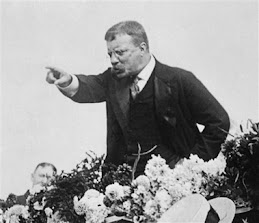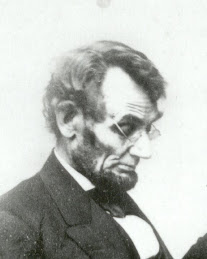It's been awhile since I've posted, mostly because I figured no one would stumble across my writings and didn't see the point in investing the time.
But a friend of mine convinced me to give it another go, to think of it as nothing more than an online journal; a repository of facts one feels are important at the time of the post. E-memoirs, of sorts.
And recent events have underscored for me the importance of clarifying one's thoughts, whether it's with the help of another person ... or even a keyboard.
On Monday, April 16, a lonely 23-year-old South Korean man named Cho Seung-hui shot more than 50 people on the campus of Virginia Tech; 32 of them died. Then he turned the gun on himself; 33 dead because of one man's inability to cope with the reclusive shell in which he ensconced himself.
Those who knew of him - did anyone truly know him? - recounted numerous stories, reaching back to high school, about his agonizing shyness and near phobic aversion to anything resembling friendship, or even attention. One story had him refusing to read aloud in class, only to be openly mocked by unfeeling adolescent classmates when his garbled, heavily accented voice finally lurched through the assigned text.
His is now a voice with which we're all familiar, thanks to NBC and YouTube. Yes, while many of us successfully ate our hatred for those who acted cruelly to us in our young lives, Cho took a step few of us could've fathomed. He mailed a multimedia manifesto to NBC detailing what he planned to do with the Glock 19 (9mm) and Walther .22 that he'd purchased legally and boldly displayed in photos and video.
And this was after he'd shot and killed two Va Tech students.
The contortions of rage that twisted Cho's face in those images - an ill-advised decision by NBC to air the video just two days after the incident met with appropriate outrage - was an embodiment of the frustration that must have been building for years. It had to have short-circuited the synapses of logic in what had to be a brain of above-average intelligence.
Cho perpetrated this horrific crime just weeks before graduation, at which point he could have closed the collegiate chapter of his life and begun anew virtually anywhere in the country, or the world. He could've made up his own back story; conveyed the image and personality he'd always imagined for himself but felt precluded from attaining.
But would it have helped him to replace one crowd of strangers for another in a world that was full of them? Hadn't he already been surrounded by strangers most of his life, even if they were categorized as such by his own preference? If any of his former classmates would've known what acts he would commit just a few years after their paths crossed his, would anyone have tried to stop him? Could anyone have stopped him? When and where was Cho's point of no return?
It's an impossible question, of course, as we cannot prove a negative. (How many murders weren't committed today?) But I have to believe that one kind word; one smile from a stranger in a hallway; one invitation to a party, bar or even lunch, might have been just enough for Cho to put off his murderous rampage one more day. And then maybe another day. Another. Another.
How many massacres have we averted by one act of kindness that meant nothing to us but may still have been enough to bring someone back from the ledge?
We can't live in fear of the next random act of mass violence, which, odds are, will never touch us. But we can launch a preemptive strike with a weapon no more powerful than a kind word.
Friday, April 27, 2007
Subscribe to:
Post Comments (Atom)



No comments:
Post a Comment